
Marcos Pires, PhD, assistant professor at Lehigh University, explains the inspiration behind his team’s research in immunotherapy as a new way to fight bacterial infection.

Marcos Pires, PhD, assistant professor at Lehigh University, explains the inspiration behind his team’s research in immunotherapy as a new way to fight bacterial infection.

Richard Krieger, MD, chairman of the Infection Control Committee at Chilton Medical Center, and infectious disease physician at ID care, discusses if Lyme disease poses a bigger threat than Zika virus in New Jersey.

Marcos Pires, PhD, assistant professor at Lehigh University, explains the main points behind his research regarding immunotherapy.
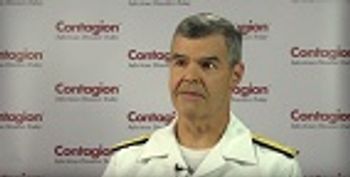
Stephen Redd, MD (RADM, USPHS), Director of the Office of Public Health Preparedness and Response (OPHPR) at the Centers for Disease Control and Prevention (CDC), discusses if the public should be concerned by avian influenza.
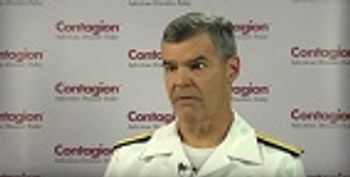
Stephen Redd, MD (RADM, USPHS), Director of the Office of Public Health Preparedness and Response (OPHPR) at the Centers for Disease Control and Prevention (CDC), explains how to combat anti-vaccine trends.
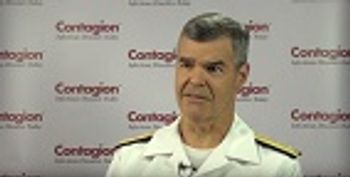
Stephen Redd, MD (RADM, USPHS), Director of the Office of Public Health Preparedness and Response (OPHPR) at the Centers for Disease Control and Prevention (CDC), discusses the 2016-2017 flu vaccine.
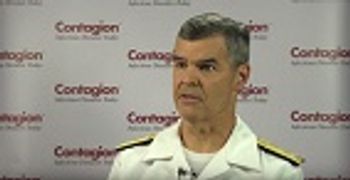
Stephen Redd, MD (RADM, USPHS), Director of the Office of Public Health Preparedness and Response (OPHPR) at the Centers for Disease Control and Prevention (CDC), discusses if the influenza vaccine can be administered to a patient with Zika.
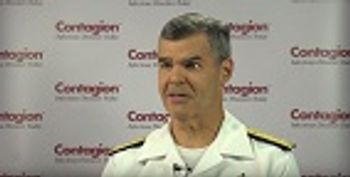
Stephen Redd, MD (RADM, USPHS), Director of the Office of Public Health Preparedness and Response (OPHPR) at the Centers for Disease Control and Prevention (CDC), discusses Zika and sexual transmission.
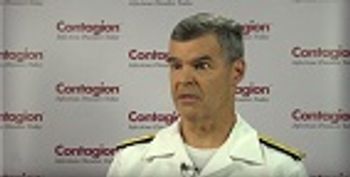
Stephen Redd, MD (RADM, USPHS), Director of the Office of Public Health Preparedness and Response (OPHPR) at the Centers for Disease Control and Prevention (CDC), discusses what is known about the study that found Zika virus in tears.
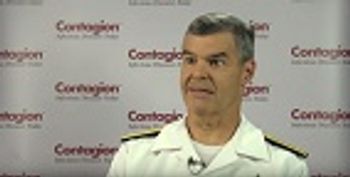
Stephen Redd, MD (RADM, USPHS), Director of the Office of Public Health Preparedness and Response (OPHPR) at the Centers for Disease Control and Prevention (CDC), discusses if vertical transmission of Zika is cause for concern.
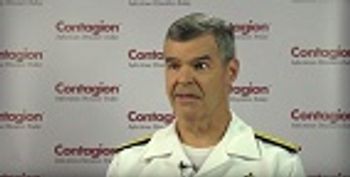
Stephen Redd, MD (RADM, USPHS), Director of the Office of Public Health Preparedness and Response (OPHPR) at the Centers for Disease Control and Prevention (CDC), discusses if southern states will see more Zika infections.

Richard Krieger, MD, chairman of the Infection Control Committee at Chilton Medical Center, and infectious disease physician at ID care, recommends how to reduce the risk of Lyme disease.
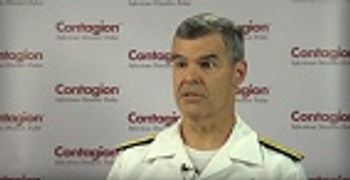
Stephen Redd, MD (RADM, USPHS), Director of the Office of Public Health Preparedness and Response (OPHPR) at the Centers for Disease Control and Prevention (CDC), explains what the CDC is doing about Zika.

Richard Krieger, MD, chairman of the Infection Control Committee at Chilton Medical Center, and infectious disease physician at ID care, discusses whether the new Lyme-carrying bacteria, Borrelia mayonii, has different effects than Borrelia burgdorferi.

Stephen Redd, MD (RADM, USPHS), Director of the Office of Public Health Preparedness and Response (OPHPR) at the Centers for Disease Control and Prevention (CDC), explains how the Zika outbreak in Florida shed light on methods to control the spread of the virus.

Richard Krieger, MD, chairman of the Infection Control Committee at Chilton Medical Center, and infectious disease physician at ID care, discusses how symptoms associated with Lyme arthritis differ from those of rheumatoid arthritis.
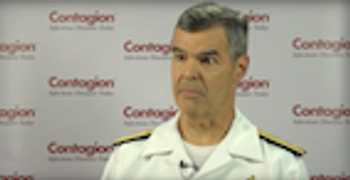
Stephen Redd, MD (RADM, USPHS), Director of the Office of Public Health Preparedness and Response (OPHPR) at the Centers for Disease Control and Prevention (CDC), explains what is currently known about Zika and Dengue coinfection.

Richard Krieger, MD, chairman of the Infection Control Committee at Chilton Medical Center, and infectious disease physician at ID care, explains how clinicians should manage patients with so-called “chronic Lyme disease.”
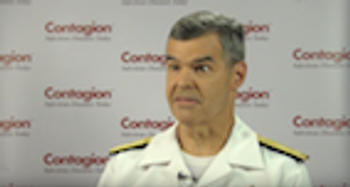
Stephen Redd, MD (RADM, USPHS), Director of the Office of Public Health Preparedness and Response (OPHPR) at the Centers for Disease Control and Prevention (CDC), discusses whether or not there are differences between US-acquired Zika and non-US acquired Zika virus cases.

Richard Krieger, MD, chairman of the Infection Control Committee at Chilton Medical Center, and infectious disease physician at ID care, discusses tests used to diagnose Lyme disease and the potential consequences of misdiagnosis.
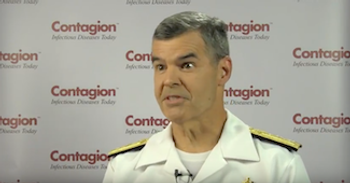
Stephen Redd, MD (RADM, USPHS), Director of the Office of Public Health Preparedness and Response (OPHPR) at the Centers for Disease Control and Prevention (CDC), gives a brief overview of Zika Virus.

Richard Krieger, MD, chairman of the Infection Control Committee at Chilton Medical Center, and infectious disease physician at ID care, provides a brief overview of Lyme disease.
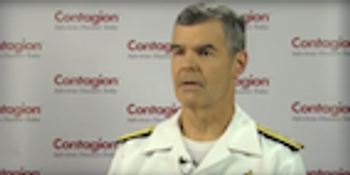
Stephen Redd, MD (RADM, USPHS), Director of the Office of Public Health Preparedness and Response (OPHPR) at the Centers for Disease Control and Prevention (CDC), explains how the Zika virus spread to the United States.

Richard Krieger, MD, chairman of the Infection Control Committee at Chilton Medical Center, and infectious disease physician at ID care, discusses how clinicians go about diagnosing Lyme disease.

Kenneth Fife, MD, PhD, Professor of Medicine at Indiana University, School of Medicine, discusses whether or not his genital herpes vaccine, GEN-003, can protect against oral herpes.

Barry Kreiswirth, PhD, founding director, Public Health Research Institute Tuberculosis Center, professor of medicine at Rutgers University, explains the differences between a research lab and a hospital lab.
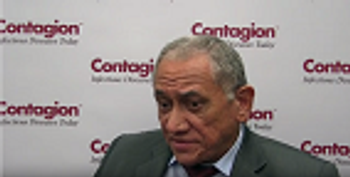
Pedro Fernando da Costa Vasconcelos, MD, PhD, director of WHO Collaborating Center for Arbovirus and Research, Evandro Chagas Institute, discusses the prognosis of babies with Zika-related complications.

Stephen Redd, MD (RADM, USPHS), Director of the Office of Public Health Preparedness and Response (OPHPR) at the Centers for Disease Control and Prevention (CDC), discusses how clinicians can prepare for public health threats.
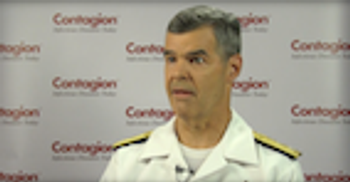
Stephen Redd, MD (RADM, USPHS), Director of the Office of Public Health Preparedness and Response (OPHPR) at the Centers for Disease Control and Prevention (CDC), explains why healthcare providers are the ideal candidates to relay information about public health preparedness.

Barry Kreiswirth, PhD, founding director, Public Health Research Institute Tuberculosis Center, professor of medicine at Rutgers University, discusses the challenges of conducting clinical trials as the threat of antibiotic resistance increases.